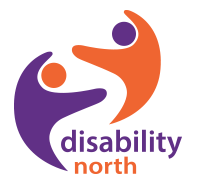The government’s continuing failure to address the harm caused to disabled people during the pandemic has led to “anxiety and hardship” and a “continuing bleak picture of marginalisation”, according to user-led research.
In a new report, Inclusion London says that “loss of control, social isolation and feelings of dependency” and the “strain of making ends meet” have had a “devastating impact” on disabled people during the crisis.
The report calls for urgent action to address problems such as food poverty, financial difficulties, workplace discrimination, and access to medicine, COVID-19 vaccines and social care.
The Locked Down and Abandoned report – which documents disabled people’s experiences during the pandemic – says the problems have been “compounded” by a failure to engage and listen to disabled people and disabled people’s organisations (DPOs).
While the government insists it is protecting and supporting those in greatest need, it has instead introduced new laws, guidance and policies which have “actively undermined” disabled people’s “ability to protect ourselves and our rights to critical support”, says the report.
Disabled people “are struggling to understand their rights and what they should do and how to keep themselves safe”, with “fast changing, inaccessible and often confusing guidance” increasing their anxiety and distress.
Disabled women and disabled people from minority ethnic groups have been even more disproportionately affected by the pandemic and the measures taken to respond to it, says Inclusion London.
The report draws on results from a UK-wide survey of more than 550 people, as well as focus groups and workshops.
Many of those who took part said they had experienced reduced support due to high levels of staff sickness, cuts to care packages, and increased care charges.
Some saw their in-person support replaced by phone calls or their support hours cut, which stopped them leaving their homes.
Many complained about “inadequate” communication from their local council, with some reporting difficulties in securing advice or even any response at all, while some local authorities increased care charges, pushing disabled people further into poverty “and causing some to stop their care altogether”.
One respondent told Inclusion London last September: “I used to [have] 42 hours of care per week pre lockdown. I now only have one 15 minute telephone call per day.”
Another said last month: “I advocate for several service users, one had all hours removed for going out and was refused [their] request to have them back when lockdown eased.
“Even though she was desperate to get outdoors she could not without help so has been stuck indoors since March 2020, not shielding, but trapped due to so few care hours.”
More than four-fifths (81 per cent) of those who responded said they had experienced problems accessing healthcare.
One of those who responded to the survey said last summer: “I have no support. All promises made before leaving mental health ward have come to nothing other than assessments completed, but no actual practical support.
“I’m terrified and not coping, but no one can help.”
More than a third (37 per cent) of those who responded said they were experiencing employment and financial difficulties because of COVID-19.
And more than a third (36 per cent) said they were finding it difficult to access the community, including a continuing struggle to access food, with most services and support moving online, and changes to the built environment, such as street layouts.
Employers have failed to comply with the Equality Act and have often refused to make reasonable adjustments for disabled staff who are working from home, says the report.
And many disabled people shielding from the virus have been left “without a right to furlough and were pushed to take leave or accept woefully inadequate support” through statutory sick pay.
The high costs of food, medicine and utilities has also pushed disabled people into greater poverty, says Inclusion London.
One disabled person who responded to the survey said: “Society changed overnight and barriers increased hugely from food to PPE [personal protective equipment].
“Things I rely on like gloves and wipes have increased in price x4… There is no pathway through my GP or social services for this. I feel quite abandoned.”
Among its recommendations, the report calls for an independent inquiry to investigate the disproportionately high number of disabled people’s deaths from COVID-19.
And it calls for DPOs to be involved in all COVID-19 planning and recovery work at local, regional and national level.
Inclusion London also calls for urgent increases in social care funding that will enable dignity, choice and control for disabled people, with DPOs “fully involved in developing proposals for the reform of social care”.
And it says there should be “urgent action to ensure social security provides an adequate level of income protection”.
But it warns that its evidence of marginalisation is likely to underestimate its true extent as it has been unable to reach those who do not have access to the internet or are living in institutional settings.
News provided by John Pring at www.disabilitynewsservice.com/
11 February 2021

